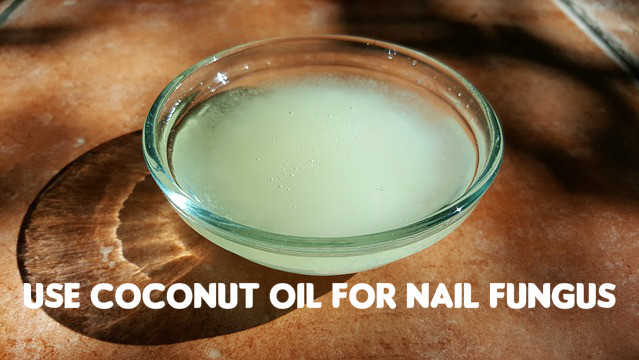Can Coconut Oil Kill Nail Fungus

The persistent and often unsightly nature of nail fungus has driven countless individuals to seek effective and accessible remedies. Among the many proposed solutions, coconut oil has emerged as a popular natural treatment, fueled by anecdotal evidence and the perceived benefits of its antifungal properties.
But does this tropical staple truly hold the key to eradicating nail fungus, or is its reputation built on shaky ground? Let's examine the scientific evidence and expert opinions to determine the effectiveness of coconut oil as a legitimate treatment option.
Understanding Nail Fungus (Onychomycosis)
Nail fungus, medically known as onychomycosis, is a common infection affecting the nails, typically toenails. The infection is caused by various types of fungi, including dermatophytes, yeasts, and molds.
Symptoms can range from mild discoloration and thickening of the nail to severe distortion, pain, and even separation of the nail from the nail bed. Factors that increase the risk of developing nail fungus include age, poor hygiene, nail trauma, diabetes, and a weakened immune system.
Traditional treatments often involve prescription antifungal medications, either topical or oral, which can be costly and may come with potential side effects. This has led many to explore alternative, natural remedies like coconut oil.
Coconut Oil: Properties and Potential Antifungal Effects
Coconut oil is rich in medium-chain fatty acids (MCFAs), primarily lauric acid. These fatty acids are believed to possess antimicrobial, antiviral, and antifungal properties.
Some research suggests that lauric acid can disrupt the fungal cell membrane, leading to cell death. In vitro studies (experiments conducted in a test tube or petri dish) have shown that coconut oil exhibits antifungal activity against certain fungal species.
However, it's crucial to distinguish between in vitro results and the effectiveness of coconut oil in treating nail fungus in a living person (in vivo).
The Evidence: What Does the Research Say?
Currently, there is limited clinical research specifically examining the effectiveness of coconut oil in treating nail fungus. Most studies focus on its antimicrobial properties in general, rather than its specific impact on onychomycosis.
While some anecdotal evidence suggests that coconut oil can improve the appearance of infected nails, this is not the same as complete eradication of the fungus. Improved appearance may be due to the oil's moisturizing properties rather than its antifungal action.
The lack of robust, well-designed clinical trials makes it difficult to definitively conclude whether coconut oil is an effective treatment for nail fungus. More research is needed to determine its efficacy and optimal application method.
Expert Opinions and Recommendations
Dermatologists and podiatrists generally recommend traditional antifungal medications as the primary treatment for nail fungus. These medications have been rigorously tested and proven effective in clinical trials.
Dr. Emily Carter, a board-certified dermatologist, states, "While coconut oil may possess some antifungal properties, it's not a substitute for proven medical treatments for nail fungus. Patients should consult with a healthcare professional for proper diagnosis and treatment."
Some experts suggest that coconut oil may be used as a complementary therapy alongside conventional treatments. Its moisturizing properties could help improve the overall health of the nail and potentially enhance the effectiveness of other medications.
How to Use Coconut Oil (If You Choose To)
If you decide to try coconut oil as a complementary treatment, it's essential to use it correctly. Start by cleaning and drying the affected nail thoroughly.
Apply a thin layer of coconut oil to the nail and surrounding skin, gently massaging it in. Repeat this process several times a day.
It's important to note that coconut oil is not a quick fix. It may take several weeks or months to see any noticeable improvement, and there's no guarantee that it will eliminate the fungus completely. Moreover, it's crucial to avoid using coconut oil if you are allergic to it.
Potential Risks and Considerations
While coconut oil is generally considered safe, some individuals may experience allergic reactions or skin irritation. It's always best to perform a patch test on a small area of skin before applying it to the entire nail.
Furthermore, relying solely on coconut oil to treat nail fungus could delay proper medical treatment and potentially worsen the infection. If symptoms persist or worsen, it's essential to seek professional medical advice.
Ultimately, the decision to use coconut oil as a treatment for nail fungus is a personal one. Weigh the potential benefits against the limitations of the evidence and consult with a healthcare professional before making any decisions.
The Bottom Line
While coconut oil may offer some antifungal benefits due to its lauric acid content, the scientific evidence supporting its effectiveness in treating nail fungus is currently limited. Conventional antifungal medications remain the gold standard for treating onychomycosis.
Coconut oil may be used as a complementary therapy to help moisturize the nail and potentially enhance the effectiveness of other treatments, but it should not be considered a substitute for proven medical interventions. Always consult with a healthcare professional for proper diagnosis and treatment of nail fungus.
Further research is needed to fully understand the potential role of coconut oil in the treatment of nail fungus and to determine its optimal application method.


















